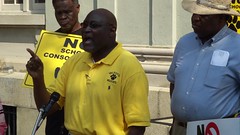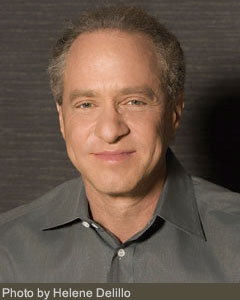 Economist, author, and advisor to governments
Jeremy Rifkin
told an agent of the world's largest uranium field operator
at a conference of global investors that there's no business
future in nuclear power.
Economist, author, and advisor to governments
Jeremy Rifkin
told an agent of the world's largest uranium field operator
at a conference of global investors that there's no business
future in nuclear power.
Jeremy Rifkin answered a question at the Wermuth Asset Management 5th Annual Investors Event 26 September 2012, Nuclear Power is Dead,
I don't spend much time on nuclear technology, unless somebody asks
me about it, because frankly from a business perspective, I think it's over….
Here's the video, followed by more transcript and discussion.
Continue readingNuclear power was pretty well dead in the water in the 1980s after Three Mile Island and Chernobyl. It had a comeback. The comeback was the industry said "we are part of the solution for climate change because we don't emit CO2 with nuclear; it's polluting, but there's no CO2".
Here's the issue though,


